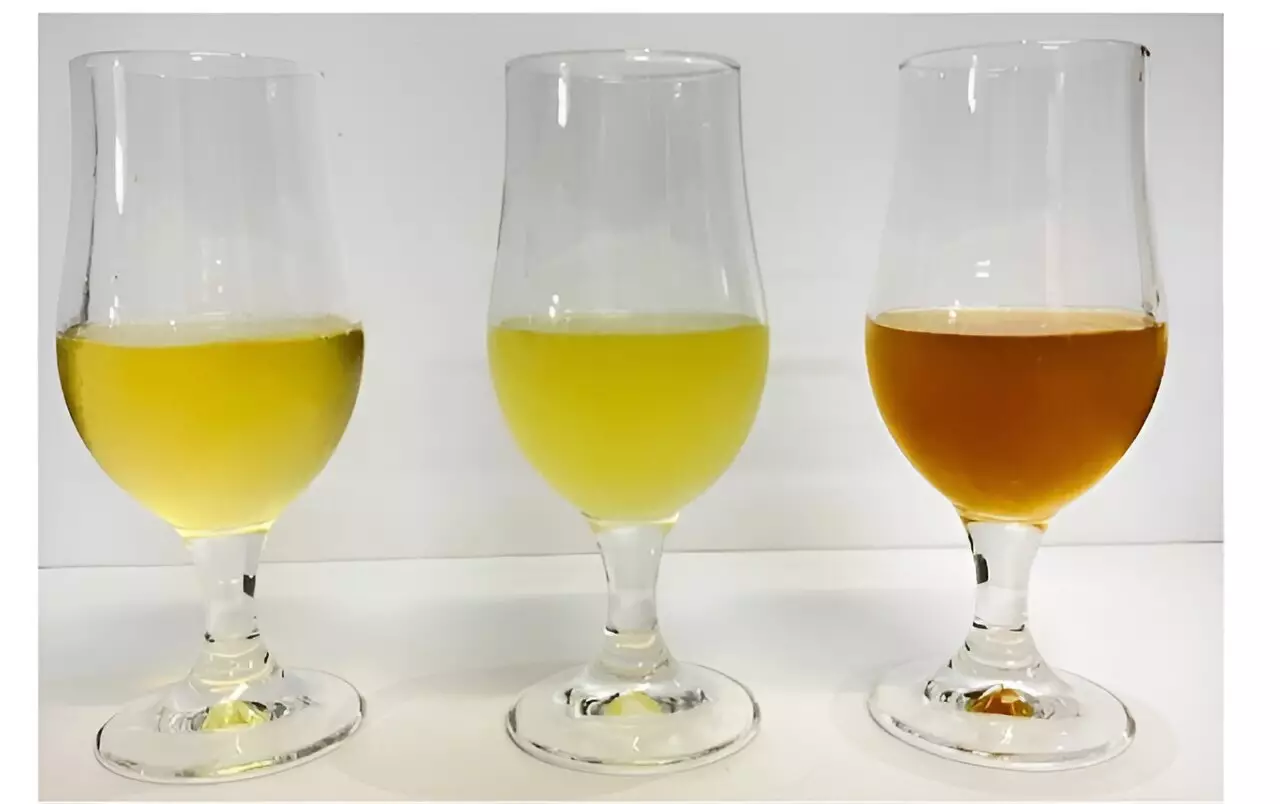Kombucha has gained remarkable popularity in recent years as a healthful fizzy drink, primarily composed of fermented tea. Its distinct tangy flavor and effervescent nature have captivated the taste buds of many health-conscious consumers. However, as interest in versatile fermentation practices grows, brewers have started to experiment with alternative plant-based liquids, broadening the horizons of what fermented beverages can offer. Recent studies, including one published in the journal ACS Agricultural Science & Technology, delve into this trend by examining the nutritional properties and flavor profiles of beverages crafted from apple and passion fruit juices alongside traditional kombucha.
The art of kombucha brewing revolves around a symbiotic culture of bacteria and yeast (SCOBY), which ferments sweetened tea while developing beneficial probiotics that enhance gut health. The process typically allows for the extraction of bioactive compounds inherent in the tea itself, such as flavonoids, phenolics, and anthocyanins. These compounds, often heralded for their antioxidant and anti-inflammatory effects, contribute to the beverage’s health benefits. However, the exploration of other juice bases has been limited, creating a gap in understanding their potential as viable alternatives.
In a novel approach, researchers including Socorro Vanesca and Frota Gaban decided to fill this gap by fermenting apple and passion fruit juices in a traditional kombucha environment. They aimed to compare the biochemical properties and sensory experiences associated with these beverages in relation to traditional kombucha.
After conducting a 10-day fermentation process at room temperature, the researchers analyzed the bioactive compounds present in each brew. Interestingly, their findings showed that the apple-based beverage contained the highest levels of flavonoids, setting it apart as a promising kombucha alternative. Both the kombucha and apple juice beverages featured comparable phenolic compounds, while passion fruit juice fell behind in this regard. Despite sharing similar anthocyanin levels across the three drinks, the taste and aroma attributes varied significantly, revealing important consumer preferences.
To gather qualitative data, the researchers engaged a panel of 12 taste testers to assess each beverage’s visual appeal, aroma, and flavor. The apple brew was discerned to possess a radiant amber hue, while passion fruit exhibited a bright yellow, and kombucha presented a golden tint. Taste testers noted more robust fruity aromas coming from the apple and passion fruit drinks compared to kombucha. Notably, the bitter profile of the passion fruit juice did not resonate as well with the testers, who gravitated towards the more pleasant sweetness of the apple and the tea-based beverages.
Based on the superior sensory experience and the health-centric profile of fermented apple juice, the researchers concluded it could serve as a fantastic alternative to traditional kombucha. The potential to expand the realm of fermented beverages is immense, heralding the possibility of new flavors and health benefits that could appeal to an even broader audience. As consumer interest in innovative health beverages continues to grow, the future of fermentation looks brighter than ever, inviting new explorations that may redefine what we consider kombucha and similar drinks. The journey into the wonders of fermentation is only beginning, and the pursuit of enhanced health benefits and flavors from various fruits promises exciting discoveries ahead.


Leave a Reply